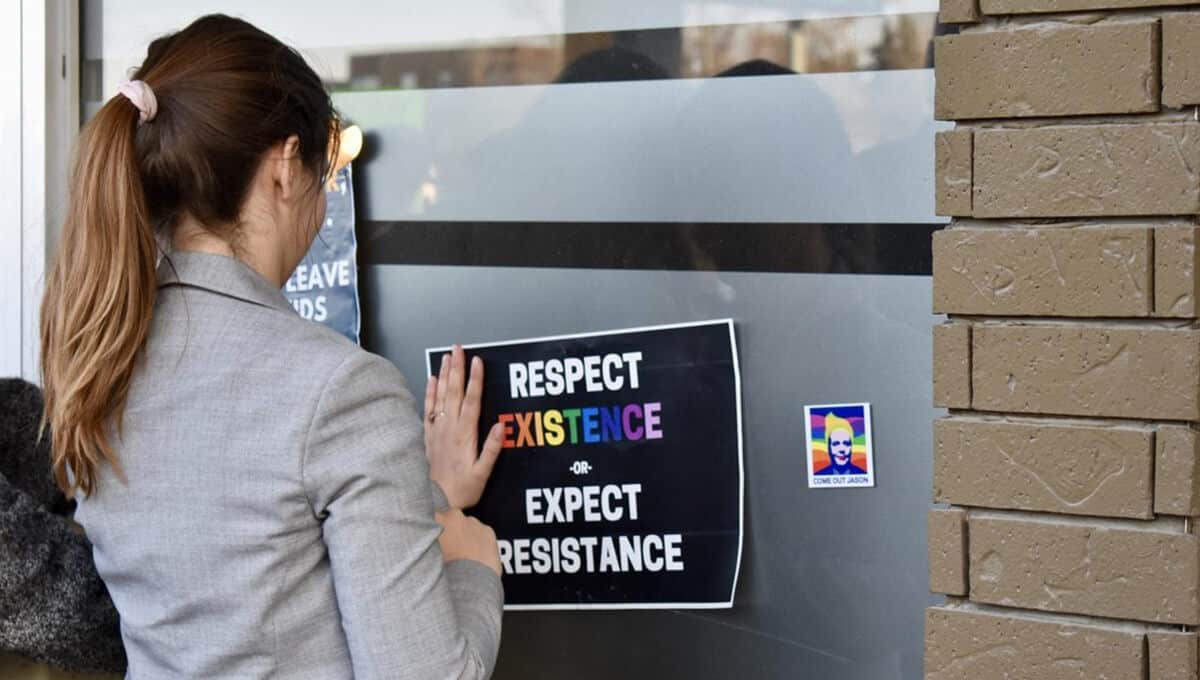
What is a Trans Ally?
If you’ve not come across this before, the term “ally” by definition is someone who supports or advocates for members of a community other than their own. We often receive emails or visits to our blog from friends and family members of trans men and women. One of the main reasons for these inquiries is because they are looking for ways to better understand the community at large in hopes of being supportive in any way they can. Now while this list is just the tip of the iceberg, we do encourage you to use this article as a good starting off point and then further educate yourself from here. Let’s take a look at the best ways to be a good trans ally. If you want to know more about being a good trans ally specifically at work, have a read of this post by TUC.org.
Understanding Personal Pronouns
This can sometimes be a tough one as these pronouns can change over time as they have over the last few years. The best course of action here is to see how the person refers to themselves. If you are still not sure, you can start by saying “I use the pronouns he/him. What do you use?” Once that person tells you their preferred pronoun, make sure to use that when referring to that person if you are not using their name. And if the moment occurs where you misuse a pronoun, it’s best to quickly apologize and move on. The longer you dwell on it the more uncomfortable you will make everyone. If you are not sure of the current pronouns that are used, do a quick Google search and you will find all the info you need.

Understand the Terminology
Terms are different then pronouns. If you look at this at the most basic level, a trans person was assigned a gender at birth but that does not line up with how they feel about themselves. Just like with pronouns, it pays to do the research online instead of grilling your trans friend about all of the information you may need. If this person is still navigating how they would like to be identified, give them the time to figure it out on their own as this is for them to decide and them alone. The last thing to remember here is that there is a difference between sexual orientation and gender identity. Which brings us nicely to…
Don’t Assume Their Sexual Orientation
This is a common mistake as gender identity is not the same as someone’s sexual orientation. A trans person can be straight, gay, lesbian or bisexual or asexual. The way they identify as a gender does not dictate which sex they are attracted to. Also, keep in mind that coming out as transgender is not the same thing as coming out as gay, lesbian or bisexual.
Never Out Somebody
This is a huge, huge, huge no-no as this would instantly break the trust you have with this person. This is not something that you can do and then take back and apologize for. Once it’s out there, it’s out there. Even if your friend/family member decides to tell others, that still does not permit you to share it as well. That person and only that person has the right to share this part of themselves. By outing someone who is transgender, you could potentially endanger their job, family life and overall well being. This also includes you using their past gender name. Never say “I knew Trish when she was Ted.” That’s called dead-naming (using a trans person’s birth name and not their chosen name) and it is just the same as outing them and not acceptable. If you want to be a supportive trans Ally, this point is absolutely key.
Be A Good Listener
If your trans friend trusts you enough to open up and discuss their life with you, it is imperative that you really take the time to listen. Be open minded to what they have to say and if you don’t understand something that is totally fine. It is better to admit that you don’t know something than to make an assumption that can turn into an incorrect or hurtful statement. Many trans people have a feeling of not being visible or heard so those moments that you spend with them hearing what they have to say is very important regardless of your knowledge level. But…
Don’t Go Out of Your Way to Make Compliments
A trans person does not need someone telling them that they look pretty or handsome. Do not offer them advice on dressing or hairstyles or even ways to work on their voice. This is something that they need to navigate on their own and even if you think you are trying to help, you can unknowingly turn things offensive or hurtful. If they ask for your opinion of course that’s a different situation, but you would surely feel uncomfortable too if someone was clearly over-doing it on the compliments or offering advice you didn’t ask for.
Don’t Ask Questions About the Process
While curiosity on your end will be there, do not ask questions about the process of transitioning as it can make that person uncomfortable. There are various ways to transition and they don’t always include surgeries and hormones, etc. Transitioning can be a long, hard road both mentally and physically and oftentimes that is one part of the process that a trans person may not want to share. Also, never ask if they are “pre-op” or “post-op” as it is very inappropriate. Look at it this way, would you want someone to start questioning you about your genitals? Be respectful of their privacy and if they want to share their experiences with you, they will.

Transitioning is Not the Same for Everyone
To follow up what I was saying above, each person’s transition journey is different. Some transgender people go through various medical procedures to line up with their gender identity. Others want to live as their gender identity without any medical procedures, while others may not be able to afford all that goes with medically transitioning is they work with the cards they are dealt. Remember, a transgender person’s identity is not defined by their physical appearance or if they’ve had medical procedures. If someone tells you that they are transgender then that is what you should accept.
As a Cis person, you will never fully understand the life of someone who is transgender. You can read as much as you want and be as knowledgeable as you can, but unless you are living in their skin, you cannot truly understand. And that is not a bad thing as no one would expect you to. Just being as supportive as you can when needed is truly the key to being a strong trans ally. We hope our guide to being a good trans ally has been useful, but if you have any more questions around what a trans ally is, or want some more help with a personal situation, please do feel free to get in contact with us. Details can be found below.
We would love to know what our trans readers have to say too. What makes someone a good trans ally? Share your stories with us and we can include them in future articles on this subject. Email us at [email protected] or by messaging us on our Facebook page.
